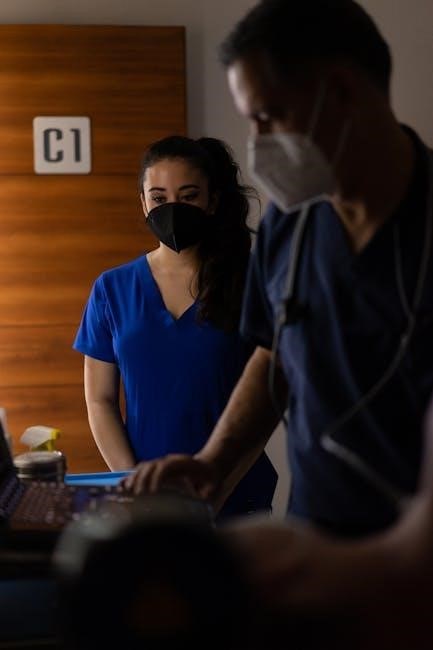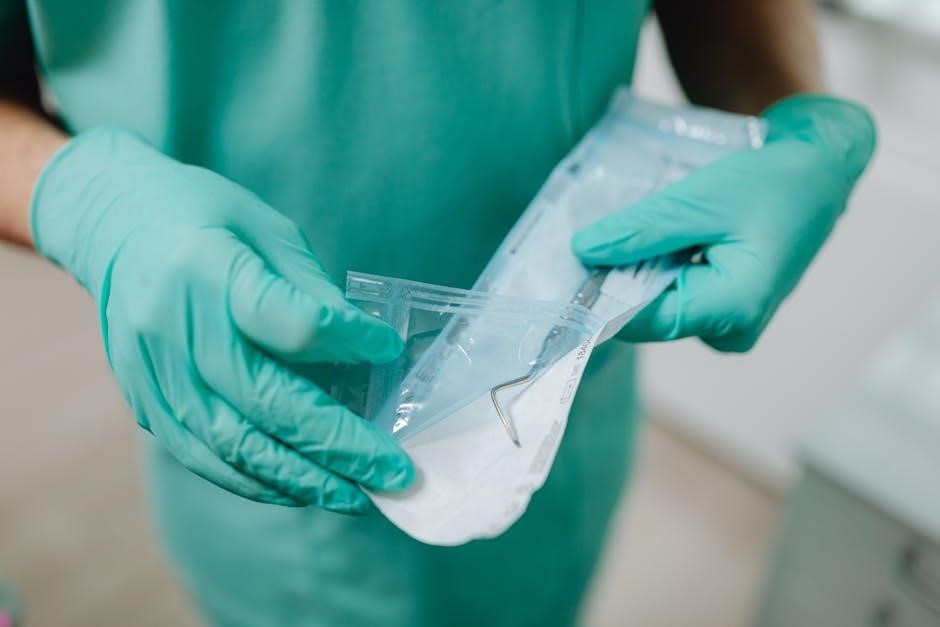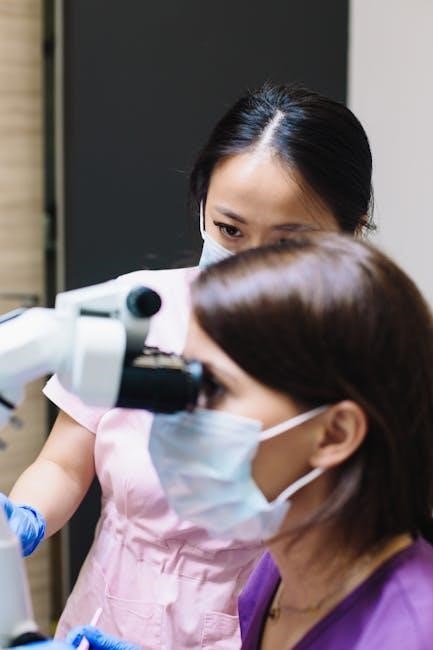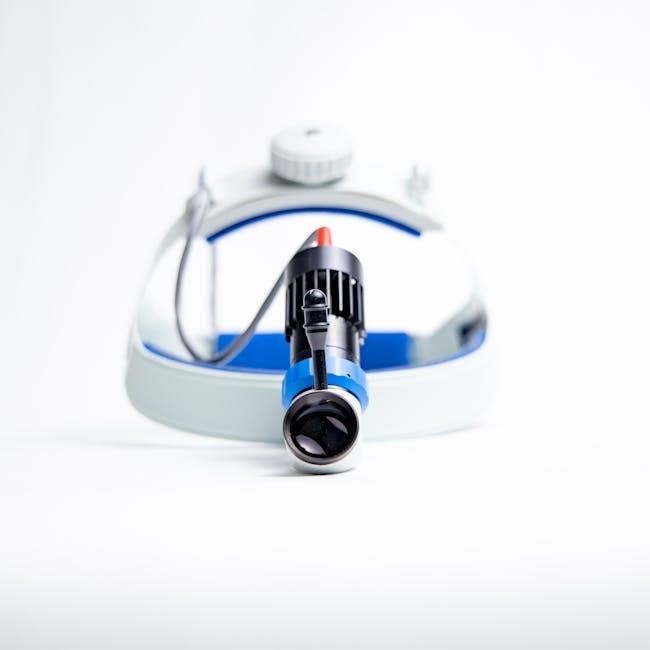surgical technology for the surgical technologist pdf
- Published
- in PDF
Surgical technology involves medical procedures and patient care using various
equipment and techniques to assist surgeons and nurses during operations and treatments daily always․
Overview of the Surgical Technologist Profession
Surgical technologists are essential members of the healthcare team, working closely with surgeons, anesthesiologists, and nurses to ensure the safe and effective delivery of patient care․ They are responsible for preparing operating rooms, sterilizing equipment, and assisting with surgical procedures․ The profession requires a strong foundation in anatomy, physiology, and microbiology, as well as excellent communication and teamwork skills․ Surgical technologists must also be able to work well under pressure and think critically in high-stress situations․ With the increasing demand for healthcare services, the role of the surgical technologist is becoming increasingly important․ As a result, there is a growing need for skilled and competent surgical technologists who can provide high-quality patient care and support the surgical team․ The surgical technologist profession offers a rewarding and challenging career path for those interested in healthcare and surgery․ Surgical technologists can work in a variety of settings, including hospitals, clinics, and surgical centers․

Education and Training for Surgical Technologists
Formal education and training programs are necessary for surgical technologists to acquire skills and knowledge in medical procedures and patient care daily always using equipment․
Typical Entrance Requirements and Certification
To become a surgical technologist, one must meet certain entrance requirements, which typically include a high school diploma and prerequisite courses such as anatomy and physiology, medical terminology, and microbiology․
Additionally, certification is strongly suggested and preferred by many employers, with the most common credential being the Certified Surgical Technologist (CST) offered by the National Board of Surgical Technology and Surgical Assisting․
This certification demonstrates that an individual has the necessary knowledge and skills to perform as a competent surgical technologist, and it is often required for employment in this field․
By meeting these entrance requirements and obtaining certification, individuals can pursue a career as a surgical technologist and provide essential support to surgeons and other medical professionals during surgical procedures․
Overall, the entrance requirements and certification process for surgical technologists are designed to ensure that individuals have the necessary education, training, and expertise to perform their duties safely and effectively․

Surgical Technology Program Mission Statement
The mission is to provide didactic and clinical instruction enabling individuals to perform as competent entry-level surgical technologists daily always using equipment․
Program Goals and Objectives
The program goals and objectives are to prepare students to complete the Surgical Technologist National Certifying Examination conducted by the National Board of Surgical Technology and Surgical Assisting․ The program aims to prepare competent entry-level surgical technologists in the cognitive, psychomotor, and affective learning domains․ The goals of the program include providing students with the knowledge and skills necessary to perform as surgical technologists, preparing students to pass the certification examination, and helping to satisfy the need for surgical technologists in local and regional communities․ The program objectives are to provide didactic and clinical instruction that enables individuals to perform as competent entry-level surgical technologists, to prepare students to complete the certification examination, and to provide students with the skills and knowledge necessary to succeed in the field of surgical technology․ The program is designed to provide students with a comprehensive education in surgical technology․

The Role of Surgical Technologists in Patient Care
Surgical technologists play a crucial role in patient care by providing emotional support and assistance during medical procedures and treatments always using equipment and techniques correctly daily․
Pre-operative, Intra-operative, and Post-operative Care
Surgical technologists are involved in various stages of patient care, including pre-operative, intra-operative, and post-operative care․ They prepare patients for surgery by cleaning and disinfecting the operating room, assembling equipment, and assisting with patient preparation․ During surgery, they maintain a safe and efficient environment, handle surgical instruments, and assist the surgical team․ After surgery, they help with patient recovery, monitor vital signs, and provide emotional support․ Surgical technologists must be knowledgeable about surgical procedures, patient care, and operating room protocols to ensure a smooth and safe experience for patients․ They work closely with surgeons, anesthesiologists, and nurses to provide high-quality patient care; Effective communication and teamwork are essential in this role․ By providing pre-operative, intra-operative, and post-operative care, surgical technologists play a critical role in the healthcare team, ensuring that patients receive the best possible care during their surgical experience․ They must stay up-to-date with new technologies and techniques to provide optimal care․

Program Outcomes and Certification Examination
The program outcomes for surgical technologists include preparing students to complete the Surgical Technologist National Certifying Examination․ This examination is conducted by the National Board of Surgical Technology and Surgical Assisting․ The program aims to prepare competent entry-level surgical technologists in the cognitive, psychomotor, and affective learning domains․ Upon completion of the program, students will be able to demonstrate knowledge of surgical procedures, patient care, and operating room protocols․ They will also be able to apply their knowledge and skills in a clinical setting, demonstrating proficiency in surgical technology․ The certification examination is a critical step in becoming a certified surgical technologist, and the program is designed to help students achieve this goal․ By passing the certification examination, students can demonstrate their expertise and commitment to the field of surgical technology․ The program outcomes are designed to meet the needs of the healthcare industry and prepare students for a successful career as a surgical technologist․ The program is continually evaluated to ensure that it meets the highest standards of education and training․
